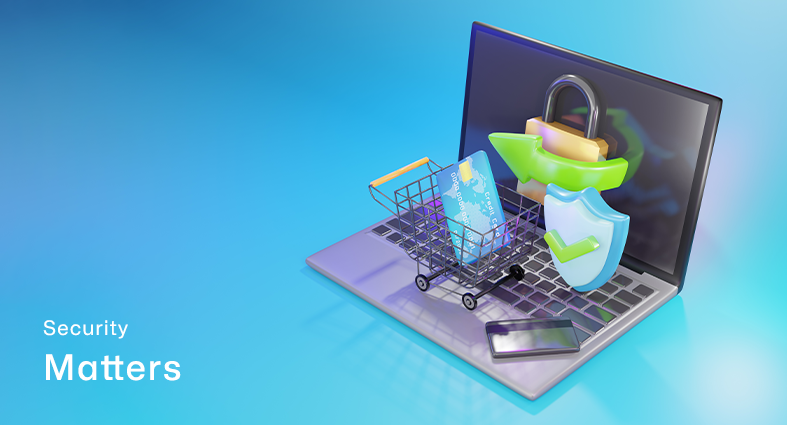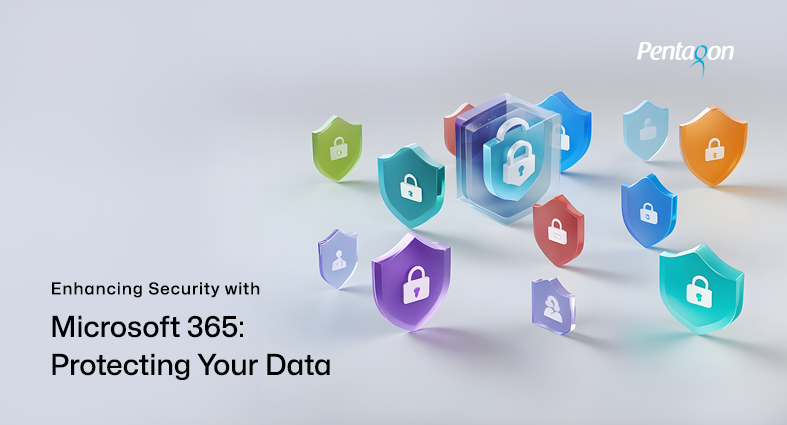E-commerce development services play a pivotal role in shaping the digital storefronts of businesses and ensuring a seamless shopping experience for customers. As the popularity of online shopping continues to soar, businesses of all sizes are embracing e-commerce to reach a wider audience and drive sales. However, with the rapid growth of e-commerce, the security aspect has become more critical than ever before. However, beyond the aesthetics and functionalities lies a critical component – security. In this article, we will explore the best security practices for safeguarding your e-commerce empire and protecting your customers’ sensitive information.
Understanding E-commerce Security
E-commerce security refers to the set of measures and strategies implemented to protect the sensitive information exchanged during online transactions, such as personal data, credit card details, and financial information. The goal of e-commerce security is to create a secure environment that inspires confidence in customers, encouraging them to shop online and share their sensitive data without fear of identity theft or financial fraud. E-commerce security is a crucial aspect of online business that focuses on safeguarding the integrity, confidentiality, and availability of data and transactions conducted through e-commerce platforms. It encompasses a range of practices, technologies, and protocols designed to protect customers, businesses, and sensitive information from various security threats. Understanding e-commerce security is essential for any business operating in the digital landscape, as it plays a pivotal role in establishing trust with customers, mitigating risks, and ensuring the long-term success of online ventures.
Common Security Threats and Vulnerabilities in E-commerce
The digital landscape presents various security threats and vulnerabilities that e-commerce businesses must be aware of and address. Some of the most common security threats and vulnerabilities in e-commerce include:
- Phishing Attacks: Phishing is a form of social engineering where attackers use deceptive emails, websites, or messages to trick users into providing sensitive information, such as login credentials or financial details.
- Payment Fraud: E-commerce platforms are often targeted by fraudsters attempting to make unauthorized transactions using stolen credit card information or fraudulent accounts.
- Data Breaches: Data breaches occur when sensitive customer information, such as credit card numbers or personal data, is accessed or stolen by unauthorized individuals.
- Malware and Ransomware: Malicious software can infiltrate e-commerce systems and compromise customer data or hold it ransom.
- Vulnerabilities in E-commerce Platforms: Outdated software, unpatched vulnerabilities, and weak security configurations can create entry points for attackers to exploit.
Secure E-commerce Development Services
E-commerce development services form the backbone of any successful online store. However, the security of your e-commerce platform is equally critical to protect sensitive customer data and maintain your brand’s reputation. In this section, we will explore the importance of choosing a reliable and experienced e-commerce development service provider and the key factors to consider when evaluating their expertise in building secure online stores. Selecting the right e-commerce development service provider is a crucial decision that can significantly impact the security and success of your online store. A trusted and experienced agency brings a wealth of knowledge and expertise to the table, ensuring that your e-commerce platform is built to withstand potential security threats and challenges.
Qualities of E-commerce Development Partner
- Reputation and Reviews: Conduct thorough research to assess the agency’s reputation in the industry. Check client reviews and testimonials to gain insights into their track record and the satisfaction level of their previous customers. Positive feedback and high ratings indicate a level of reliability and competence that you can trust.
- Experience and Portfolio: An experienced e-commerce development service provider will have a diverse portfolio showcasing a variety of successful projects across different industries. Analyzing their past work will help you gauge their ability to deliver secure and high-quality online stores tailored to the unique requirements of various businesses.
- Technology Expertise: Verify that the agency has expertise in working with different e-commerce platforms, such as Shopify, WooCommerce, Magento, or custom-built solutions. A seasoned team will have a deep understanding of the platform’s security features and know how to customize them to suit your specific needs.
- Security-Oriented Approach: Inquire about the agency’s approach to e-commerce security. A reputable provider will have a security-oriented mindset from the initial development stages to implementation, ensuring that security measures are incorporated throughout the process.
SSL Encryption for Secure Transactions
SSL (Secure Sockets Layer) encryption is a fundamental security technology used to protect data transmitted between a user’s browser and the server of the website they are visiting. This encryption ensures that the data exchanged during transactions remain private and secure, safeguarding customer information from unauthorized access by cybercriminals. SSL encryption is essential for secure data transmission because it encrypts the data exchanged between the user’s browser and the website’s server, making it indecipherable to anyone attempting to intercept the information. This means that even if a malicious actor manages to intercept the data during transmission, they would only see encrypted gibberish that is virtually impossible to decipher without the unique encryption key.
Integrating SSL into Your E-commerce Website
Integrating SSL into your e-commerce website is a straightforward yet crucial process to ensure a secure checkout process for your customers. The first step is to acquire an SSL certificate from a reputable Certificate Authority. There are different types of SSL certificates available, ranging from single domain certificates for basic protection to more advanced options like wildcard certificates for securing multiple subdomains and extended validation (EV) certificates that display the company name in the browser’s address bar, providing an additional layer of trust. After obtaining the SSL certificate, it needs to be installed on the web server where your e-commerce website is hosted. This installation process may vary depending on your hosting provider, but most hosting companies offer guidance and support to ensure a smooth setup. By enabling SSL for the checkout pages, you guarantee that all customer data, including personal and payment information, is transmitted securely.
PCI Compliance for Payment Security
Payment Card Industry Data Security Standard (PCI DSS) compliance is a critical aspect of ensuring payment security for e-commerce businesses. As online transactions become increasingly common, protecting sensitive payment information is paramount to building trust with customers and preventing data breaches. PCI DSS compliance is a set of security standards established by major credit card companies, including Visa, Mastercard, American Express, and others. These standards aim to protect cardholder data and ensure secure payment processing across all organizations that handle credit card information. For e-commerce businesses, PCI DSS compliance is not just a recommended best practice; it is a mandatory requirement. Failing to comply with PCI DSS can result in severe consequences, including financial penalties, loss of reputation, and even legal action.
Significance of PCI compliance
- Protect Customer Data: PCI DSS compliance ensures that all customer credit card data and personal information are securely encrypted during transmission and storage.
- Build Customer Trust: When customers see the PCI DSS compliance seal on an e-commerce website, they gain confidence that their payment information is in safe hands. This trust is crucial for increasing conversions, repeat business and brand loyalty.
- Prevent Data Breaches: Cyberattacks targeting e-commerce platforms are on the rise, and data breaches can have severe consequences for both businesses and their customers. PCI DSS compliance includes security measures to prevent data breaches and protect against malicious activities.
- Avoid Financial Losses: In the event of a data breach, businesses can face significant financial losses due to legal liabilities, fines, and the costs associated with remediation and customer notification.
Steps to achieve and maintain PCI compliance
- Understand the Scope: The first step is to determine the scope of PCI compliance within your e-commerce environment. This involves identifying all systems, networks, and processes that handle cardholder data.
- Conduct a PCI Self-Assessment Questionnaire (SAQ): The PCI SAQ is a series of questions that assess your e-commerce business’s security practices. The type of SAQ required depends on the volume of transactions and the methods used for processing payments.
- Protect Cardholder Data: Implement robust encryption and security measures to protect cardholder data during transmission and storage. Use encryption protocols such as SSL/TLS for secure data transmission.
- Secure Payment Applications: Ensure that all payment applications, whether developed in-house or third-party, comply with PCI DSS standards. Regularly update and patch these applications to address any vulnerabilities.
- Regular Security Testing: Conduct regular security testing, including vulnerability scanning and penetration testing, to identify and address potential weaknesses in your e-commerce infrastructure.
- Develop and Maintain Security Policies: Establish comprehensive security policies and procedures that address all aspects of PCI DSS compliance. Educate employees about these policies and enforce them consistently.
Multi-Factor Authentication and User Access Control
Relying solely on traditional username and password combinations for user authentication is no longer sufficient to protect sensitive data and thwart cyber threats. Hackers have become increasingly sophisticated in their techniques, making it essential for businesses to adopt more robust security measures. Multi-factor authentication (MFA) and user access control play crucial roles in enhancing user security and safeguarding confidential information.
Implementing Multi-Factor Authentication
Multi-factor authentication (MFA) is a powerful security measure that adds an extra layer of protection to user accounts and access points within an e-commerce platform. With traditional username and password authentication becoming more susceptible to hacking attempts, MFA introduces an additional verification step to confirm the user’s identity. This can include something the user knows (such as a password), something they have (a one-time verification code sent to their mobile device), and something they are (biometric data like fingerprint). Implementing MFA ensures that only legitimate users can access sensitive data and perform critical functions, mitigating the potential impact of security breaches and unauthorized activities.
Managing User Access
Effective management of user access control is essential for safeguarding sensitive data within an e-commerce platform. User access control refers to the process of defining and controlling user privileges, ensuring that employees and authorized personnel have access to the appropriate data and functions based on their roles and responsibilities. By implementing role-based access control (RBAC), businesses can assign specific access levels to users, restricting them from accessing data and functionalities beyond their scope.
Educating Employees About Best Practices
While technological measures are crucial for e-commerce security, educating employees about best practices for account security is equally important. Human error and lack of awareness can lead to security breaches, making it essential to train employees on how to identify and respond to potential security threats. Conducting regular security training sessions helps employees recognize phishing attempts, social engineering attacks, and other common security risks. They learn to use strong and unique passwords, avoid sharing login credentials, and adhere to security protocols when accessing sensitive data. Establishing clear security policies and guidelines reinforces the importance of account security and sets expectations for employee behavior in handling sensitive information.
Secure Data Storage and Backups
Safeguarding customer data should be a top priority for e-commerce businesses. Utilize secure data storage practices, such as encryption and access controls, to protect customer information from unauthorized access. Additionally, regular data backups are crucial for disaster recovery in case of data loss due to hardware failure, natural disasters, or cyberattacks. Implementing encryption for data at rest ensures that sensitive information remains protected, even if it is stored on physical or cloud-based servers. In combination with regular data backups, secure data storage provides an additional layer of protection against data loss due to hardware failure, cyberattacks, or unforeseen disasters.
Safeguarding Customer Data
Safeguarding customer data is a top priority for e-commerce businesses that handle sensitive information daily. Implementing secure storage practices involves using advanced security protocols to protect customer data from unauthorized access or theft. This may include data encryption, access controls, and secure servers to store customer information securely. Transparently demonstrating the commitment to secure storage practices also helps businesses comply with data protection regulations and industry standards, safeguarding their reputation and building a solid foundation for long-term success.
Regular Data Backups
The importance of regular data backups cannot be overstated in the world of e-commerce. It serves as a crucial disaster recovery strategy, ensuring that critical data is preserved and can be restored in case of data loss or system failure. Regular data backups allow businesses to recover quickly from unexpected events such as hardware malfunctions, cyberattacks, or natural disasters. A well-thought-out data backup strategy is a lifeline that enables e-commerce businesses to navigate challenging situations and emerge stronger and more resilient.
Encryption for Data at Rest
Data at rest refers to information that is not actively being processed or transmitted but resides in databases, file systems, or storage devices. Encrypting data at rest involves converting this sensitive information into a secure, unreadable format that can only be deciphered with the appropriate decryption key. Utilizing encryption for data at rest provides an additional layer of protection, particularly in scenarios where physical devices may be compromised or stolen. This proactive security measure adds a vital safeguard to customer data, protecting their privacy and the integrity of the e-commerce business.
Conclusion
Safeguarding your online empire with the best security practices is paramount to ensuring trust, confidence, and success. By implementing robust security measures, such as SSL encryption, PCI compliance, multi-factor authentication, and regular security audits, you can protect your customers’ sensitive data, build trust in your brand, and fortify your e-commerce empire against cyber threats. The combination of technological measures and employee awareness creates a powerful defense, empowering your business to navigate the digital realm with confidence and secure your place as a trusted player in the competitive e-commerce market. With a fortified trust, your e-commerce empire is positioned to thrive and grow, inspiring loyalty and fostering long-term success for your brand. Unlock the full potential of your online business with our top-notch Ecommerce development services. Take your website to new heights with secure payment gateways, responsive design, and seamless user experiences. Don’t miss out on skyrocketing sales and customer satisfaction – contact us today for a tailored Ecommerce solution that drives success!
services
Feel free to send us a message.
Please, share your thoughts, and let's chat over a cup of tea.



















